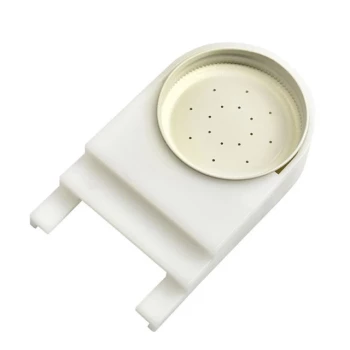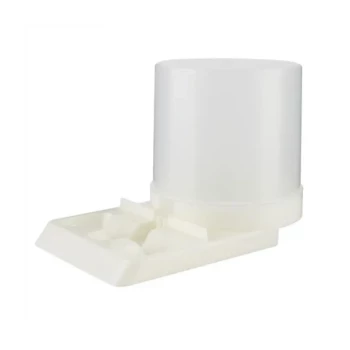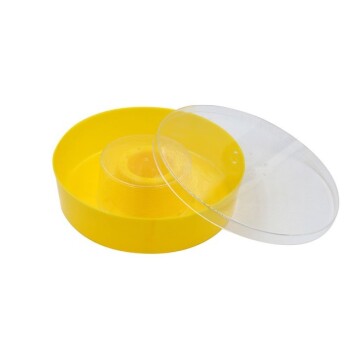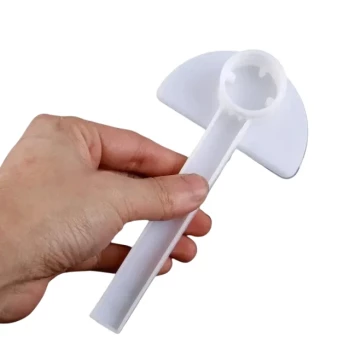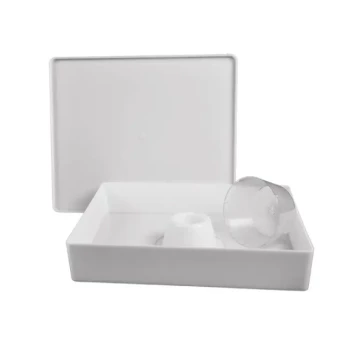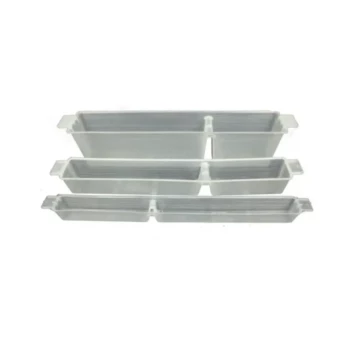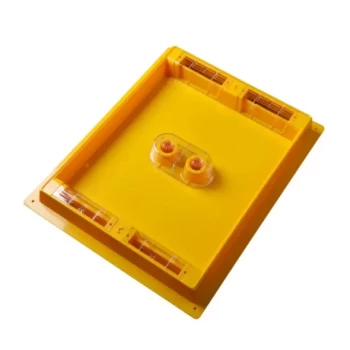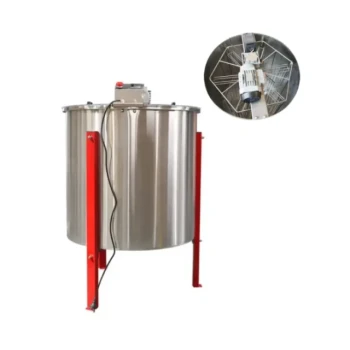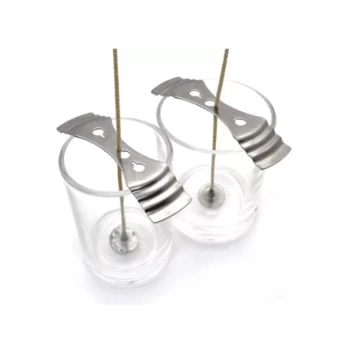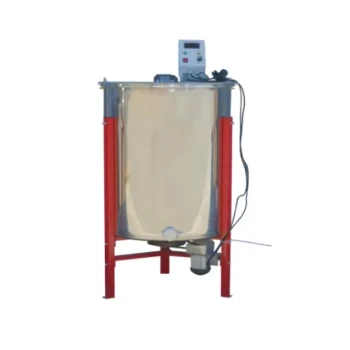To be clear, pollen availability is the single most important factor driving a honey bee colony's growth and development. Its presence directly stimulates brood rearing, while its absence triggers a rapid decline in population and overall colony health.
Pollen is not just "food" for bees; it is their exclusive source of protein, lipids, and micronutrients. The availability of pollen dictates a colony's ability to raise new bees, and a deficiency forces the colony into a survival mode that ultimately cripples its long-term viability.
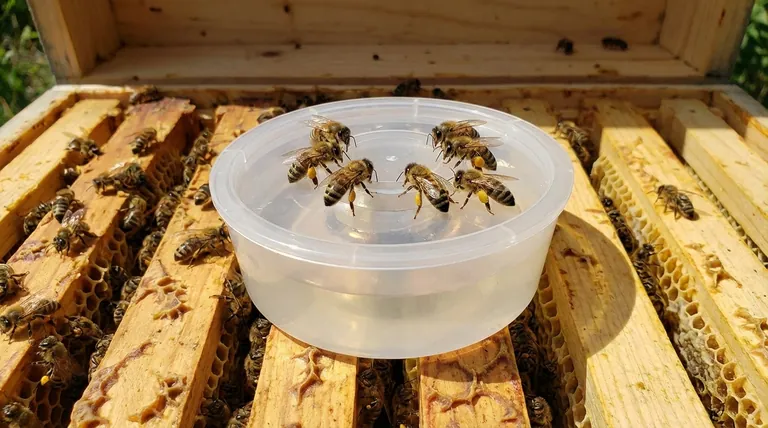
The Role of Pollen: The Colony's Essential Building Block
Nectar (and the honey made from it) provides the energy for the colony's daily activities. Pollen, however, provides the raw materials required to build and maintain the bees themselves.
Fuel for the Nursery
Young larvae are voracious eaters, and their development depends entirely on a protein-rich diet. Nurse bees consume pollen to activate their hypopharyngeal glands, which produce the "royal jelly" or "brood food" fed to the queen and developing larvae.
Without a steady intake of pollen, these glands atrophy, and nurse bees become incapable of properly feeding the next generation.
Driver of Population Growth
The queen's egg-laying rate is heavily influenced by the amount of pollen coming into the hive. A strong, consistent pollen flow signals to the colony that resources are abundant, encouraging the queen to lay more eggs and the workers to expand the brood nest.
Conversely, a sudden stop in pollen intake, known as a pollen dearth, will cause the queen to dramatically slow or even cease laying eggs.
The Cascade Effect of Pollen Deficiency
A lack of sufficient pollen triggers a series of defensive, but ultimately destructive, responses within the colony.
Cessation of Brood Rearing
The colony's first and most dramatic response is to halt brood rearing. This is a survival mechanism to conserve precious protein resources. The bees will stop feeding larvae and may even consume existing eggs and young larvae to recycle the protein.
Reduced Worker Longevity
As the reference material correctly states, bees will begin to consume their own body tissues—specifically their protein and fat reserves—to feed the last of the brood. This extreme physiological stress significantly shortens the lifespan of the adult bees involved.
A colony with a dwindling population of short-lived bees quickly loses its ability to perform essential tasks like foraging and defense, leading to a rapid collapse.
Weakened Immune Systems
Protein is fundamental to a bee's immune system. Malnourished bees suffering from a pollen deficit are far more susceptible to pathogens, viruses, and parasites like the Varroa destructor mite. This creates a vicious cycle where a lack of nutrition weakens the colony, making it more vulnerable to diseases that weaken it further.
Understanding the Trade-offs: Quality Matters
Simply having pollen available is not always enough. The nutritional quality and diversity of that pollen are just as critical for optimal colony health.
The Problem with Monocultures
Colonies situated in agricultural monocultures (like massive fields of a single crop) may have access to a huge quantity of pollen, but it's all from one source. This is like a human trying to live on a diet of only bread.
Such a diet can lack specific amino acids and lipids essential for robust development, leading to weaker, less resilient bees even when pollen seems plentiful.
The Risk of Contaminants
Since bees collect pollen from the environment, it can also be a primary vector for pesticides and other chemical contaminants. Even sub-lethal doses can have a devastating impact on brood development and the neurological function of adult bees.
How to Apply This to Your Management Goals
Understanding pollen's role allows you to make strategic decisions for your colonies.
- If your primary focus is maximizing colony growth for honey production: Ensure your bees have access to diverse and continuous pollen sources, especially in early spring, and supplement with high-quality pollen substitutes if a natural dearth occurs.
- If your primary focus is ensuring winter survival: Pay close attention to fall pollen sources, as this is when the long-lived "winter bees" are raised. These bees must build up significant fat body reserves to survive the cold months, which is entirely dependent on fall pollen intake.
- If your primary focus is supporting a weak or new colony: Direct protein supplementation is the most effective way to stimulate brood rearing and accelerate the colony's growth into a productive unit.
Ultimately, a deep understanding of pollen nutrition is the foundation of proactive and successful beekeeping.
Summary Table:
| Pollen Status | Impact on Colony | Key Outcome |
|---|---|---|
| Abundant & Diverse | Stimulates queen egg-laying; nurse bees feed larvae effectively. | Strong colony growth and population increase. |
| Deficient or Low-Quality | Brood rearing halts; bees consume body tissues; immune systems weaken. | Rapid population decline and increased disease susceptibility. |
Ensure your colonies have the nutritional foundation they need to thrive.
At HONESTBEE, we supply the high-quality beekeeping supplies and equipment that commercial apiaries and distributors rely on to support optimal pollen nutrition and colony health. From supplements to essential hardware, our wholesale-focused operations provide the tools for success.
Let's discuss how we can support your operation's specific goals. Contact our team today for expert advice and wholesale pricing.
Visual Guide
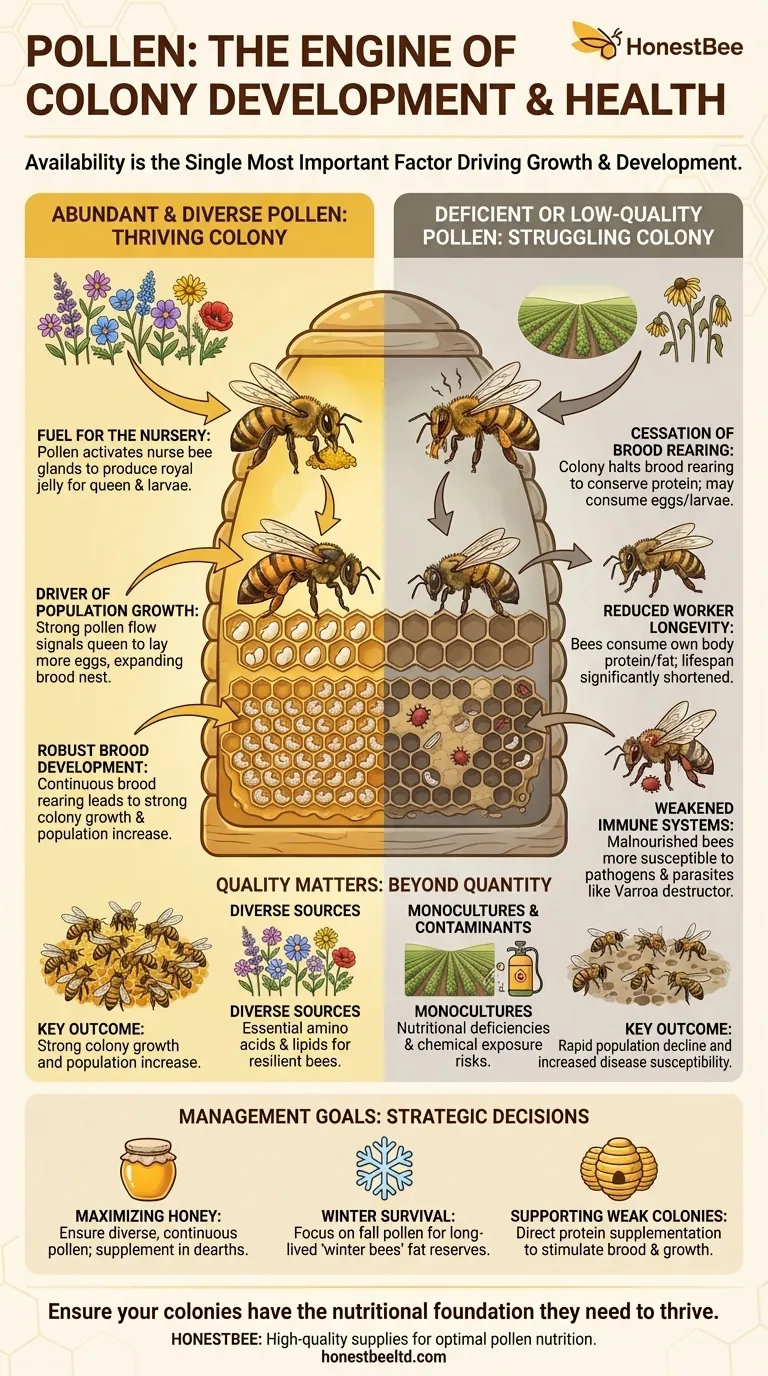
Related Products
- Rapid Bee Feeder White Plastic 2L Round Top Feeder for 8 or 10-Frame Bee Hives
- White Plastic 0.5L Beekeeping Entrance Feeder for Bees
- Professional In-Hive Frame Bee Feeder by HONESTBEE
- 3.5L Plastic Beehive Frame Feeder Deep Frame Water Feeder for In Hive Use
- Classic Boardman Entrance Bee Feeder Hive Front Feeding Solution
People Also Ask
- What is the capacity of the round hive top feeder for syrup and pollen? A Guide to Targeted Apiary Support
- What is the primary function of hive feeders for new package bees? Boost Colony Survival and Growth
- What is the advice regarding feeding bees to limit brood production based on? Managing Prolific Bee Strains
- How should the round hive top feeder be positioned? Master Internal Feeding for Stronger Colonies
- What are the recommended sugar-to-water ratios for making sugar syrup for bees? Optimize Your Hive's Health




